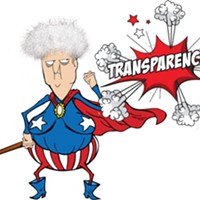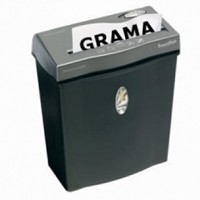Support the Free Press | Facts matter. Truth matters. Journalism matters
Salt Lake City Weekly has been Utah's source of independent news and in-depth journalism since 1984. Donate today to ensure the legacy continues.
Buzz Blog

If a smorgabsord of public records doesn't make your pulse quicken and your eyes dilate, that probably just means you're not a spreadsheet-loving, big-data journalism nerd. Plenty of folks, however—from citizen journalists and traditional media to advocates, researchers and students—will likely soon have a field day with the easy accessibility of the information.
The big data in question is so big it's not even easy to quanitfy how much is out there. For example, Salt Lakers can download a chart of all police calls for service and plug it into a map to see how many robberies are in their neighborhood. You could find data on where all the noxious weeds of Utah are, or compare natural gas values in the state since 2013. You could download a map of all the farmer's markets in Utah to see what produce they stock and whether they accept food stamps. Just in time for inversion season, you could compare hospitalization rates for asthma in every county in the state between 2000 and 2012.
Perhaps most importantly, this open data portal was designed for the average citizen—meaning The Matrix is right at your fingertips. All you need to take trip down the rabbit hole is Internet access and a few minutes to watch some video tutorials—no black leather required.
The idea of putting a cornucopia of state records online was one of the positive stories to come out of the 2011 battle over House Bill 477, a piece of legislation that intended to dramatically rewrite Utah's open records laws to impose new costs on requesting records and make it harder to access certain government records.
Lawmakers invariably got lots of ink on their faces after citizens and media representatives blasted the legislation for shutting the public out of government business, forcing the bill to be recalled. A working group was called together afterward to talk about open records reforms, and one of the general ideas proposed was to get more public records out in the open in an accessible format. Citizens then wouldn't necessarily to worry about jumping through the hoops of filing a records request, when they could simply browse online for the records they wanted, and view and download them from the convenience of their own computer.
As good an idea as it was, it still took two years of work on the part of Sen. Deidre Henderson (R-Spanish Fork) to shepherd the idea into reality in the form of Senate Bill 70, signed into law at the conclusion of the 2014 Legislature.
“My big push since I've been in the Legislature is to put more and more usable and important government data online,” Henderson says—and for her, "usable" is the key word. While the data online can be downloaded into Excel spreadsheets or other formats, the website itself offers all the tools necessary for a citizen to transform a big intimidating spreadsheet into an easy-to-understand bar graph or map with plottable points.
The data is shareable too, as citizens can take that chart or map and embed it to their own blog or website and have the chart or map even be automatically updated as new information is added to the state's website.
“Government is only transparent if you can access the data, and data is only accessible if it's usable,” Henderson says.
Henderson says the idea isn't unique to Utah, as other states like Oregon and New York have similar open data portals, but she says it is bigger and better than anything she's seen elsewhere.
While the site has only been up for long it's already getting people's attention. Connor Boyack heads up the Libertas Institute, a libertarian-leaning think tank and government advocacy organization, and he sees the site as having huge potential, especially in saving time for his staff, as well government employees who would ordinarily spend days or weeks fulfilling government records requests.
“Side-stepping this bottleneck by simply uploading what we—and others—are looking for will save everybody time and money, and more importantly increase awareness of what's going on in government,” Boyack says. “It's really a win-win for all sides.”
Daniel Burton, an administrator and contributor to Utah Politico Hub, is equally excited, and says his contributors are digging into the site, planning on incorporating it into the news and opinion they post every week.
For Dale Cressman, a professor of communications, former broadcaster and Associate Department Chair of Brigham Young University's Department of Communications, the site offers a lot for the public, journalists and citizen journalists. “Any time you get public information available to the public, it's a good thing. And it seems at a time when we have fewer journalists, that's also a plus,” Cressman says.
He points out that obtaining this kind of information previously from the government could be an arduous task, but that having it more readily available could make it easier for non-traditional journalists to use and analyze the data: “Wouldn't that be great if we could have citizen journalists digging through this stuff? I would really love to see that especially to those who want to contribute to their communities through journalism to use data like this.”
While OpenData.Utah.Gov has lots and lots of data, it doesn't have everything, Henderson points out. Right now, it has all state agency data, but information from many cities and smaller municipalities isn't on the site. That said, for everything that isn't there and still requires a citizen to file a Government Records Access and Management Act (GRAMA) request, the site also has a simple portal to help citizens file a GRAMA and have it directed to the right state agency.
Henderson says the portal already required the hiring of a staffer to help state agencies get their data on the site, and that, moving forward, she will work to see that more and more cities and municipalities do the same, in a way that isn't burdensome to their employees and budgets: “As I've run legislation to require different information to be posted online for municipalities, I've tried to be very sensitive to small municipalities in that I'm not asking the impossible, while also recognizing this is the 21st century and we need to be marching forward.”


